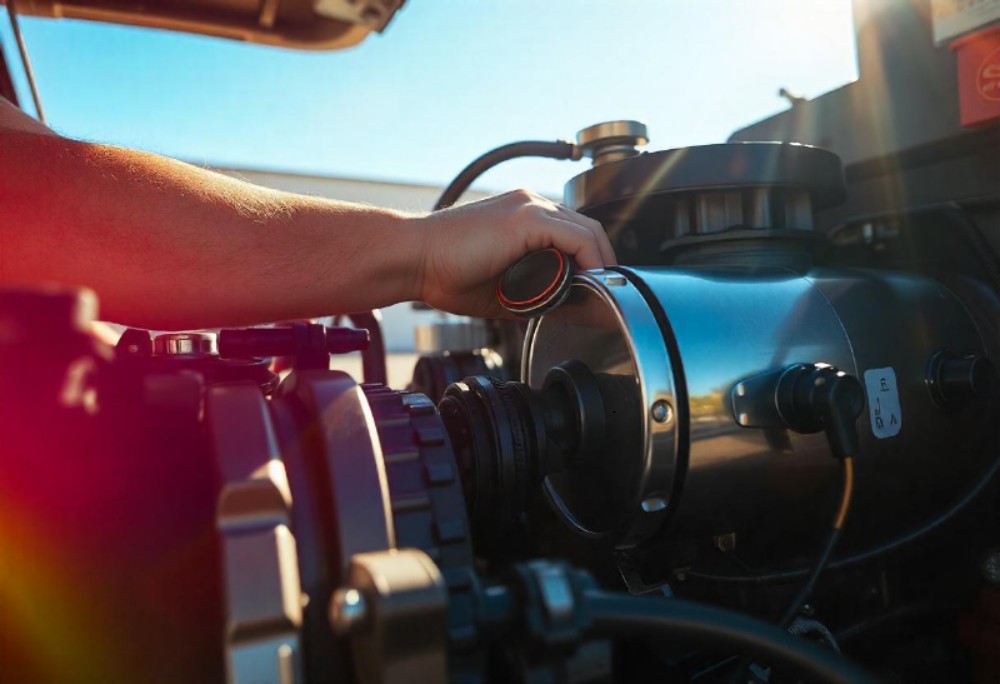Key Takeaways:
- Regular maintenance of diesel engines can significantly extend their lifespan.
- Understanding the common issues faced by diesel engines helps in effective troubleshooting.
- Employing professional services for complex repairs ensures optimal engine performance.
Introduction to Diesel Engine Maintenance
Diesel engines are renowned for their durability and remarkable efficiency, so they are zealously used in transportation, agriculture, and other heavy-duty applications. Yet, like any finely tuned machine, they require consistent maintenance to function at their best. The intricate nature of diesel engines makes regular inspections and tune-ups essential to avoid operational setbacks.
Fostering a proactive approach to engine care is vital. This involves routine checks and being attuned to the engine’s unique sounds and behaviors that might indicate trouble. By doing so, operators protect their investment and ensure better fuel efficiency and reduced emissions, aligning with environmental guidelines.
Importance of Regular Oil Changes
Motor oil is the lifeblood of diesel engines, minimizing friction, carrying away heat, and suspending contaminants. However, oil can become fouled with soot, dirt, and other particulates over time, losing its efficacy. Regular oil changes safeguard the engine’s components from wear and tear. Engine manufacturers often stipulate the frequency of oil changes, emphasizing its role in maintaining engine vitality. Engaging a qualified diesel mechanic to handle technical and complex maintenance tasks can help preempt minor issues before they exacerbate into costly repairs.
Such proactive measures provide early warnings, allowing interventions before extensive damage. Good oil maintenance practices ultimately prolong engine life, optimize performance, and enhance reliability.
Monitoring Fuel Quality and Additives
The fuel quality can substantially affect a diesel engine’s performance and longevity. Low-quality fuel often carries impurities that may clog fuel injectors and interfere with combustion, leading to inefficient power outputs and higher fuel consumption. Using fuel additives to improve fuel quality can address these problems by cleaning the fuel system and enhancing combustion efficiency. In addition to fuel management, regular maintenance from qualified tractor services should be considered to ensure optimal engine performance. Operators who remain attentive to fuel conditions benefit from better engine performance and cultivate longer engine lifespans while minimizing harmful emissions. Investing in high-grade fuel and utilizing additives judiciously forms a cornerstone in preventive engine care.
Checking and Replacing Filters
Filters are integral components that protect the diesel engine from contaminants, including dirt, debris, and particulates. Each engine relies on several filters, namely oil, fuel, and air filters, each serving a pivotal role in maintaining cleanliness. Over time, these filters can become clogged, compromising their ability to function efficiently. Operators can use oil analysis techniques to track the concentration of harmful contaminants, potential metal wear particles, and overall oil degradation.
Regular filter inspections and timely replacements are imperative in maintaining an unobstructed flow of clean air and fuel. This ensures optimal combustion and prevents the unnecessary wear of engine components. By adhering to the manufacturer’s guidelines on filter replacements, operators can maintain engine health and prevent unexpected downtimes.
Keeping an Eye on Coolant Levels
Coolants help regulate an engine’s temperature and prevent overheating. However, coolant levels can diminish over time due to leaks or evaporation. Neglecting coolant levels can lead to significant engine issues, including warping critical components or outright failure. Therefore, it is crucial to check coolant levels regularly and promptly address any discrepancies.
Operators should also know the coolant’s quality and lifespan, ensuring it can efficiently dissipate heat. Implementing a regimen for periodic coolant flushes further affirms the system’s effectiveness, thereby protecting the engine from thermal stress and maintaining patency in the cooling system.
Signs of Air Intake Issues
An engine’s air intake system requires unrestricted airflow to ensure efficient combustion. Blockages or leaks within this system can lead to underperformance. Recognizable signs include increased fuel consumption, loss of power, and unusual noises during operation. Understanding these indicators can guide operators in identifying and rectifying underlying issues swiftly.
Maintaining an effective air intake system involves regular inspections and promptly replacing worn components. In doing so, operators safeguard against declines in engine performance, ensuring reliable power delivery robustly.
Recognizing and Addressing Turbocharger Problems
Turbochargers significantly enhance the power and efficiency of diesel engines by allowing them to burn more fuel via increased air intake. However, due to their high-speed operations, they are susceptible to wear. Common symptoms of turbocharger issues include reduced power output, increased exhaust smoke, and distinctive acoustic signals such as whining or rattling.
Routine turbocharger maintenance can preempt many of these problems. By attending to warning signs early, operators prevent further deterioration and maintain the functionality and efficiency of their engines. This proactive care of turbochargers translates into sustained power and performance, providing long-term savings and stability.
When to Seek Professional Help
While some diesel engine maintenance tasks can be handled independently, certain situations necessitate the expertise of a professional. It is crucial to recognize when to consult professionals to avoid escalating problems and ensure comprehensive resolutions. Complex issues like engine rebuilding, fuel injection failures, and extensive electrical system repairs usually fall under this category.
Enlisting a seasoned mechanic can provide invaluable insights and solutions respecting [diesel maintenance](https://www.bigrentz.com/how-to-guides/diesel-maintenance), guaranteeing not only the engine’s recovery but also cementing its reliability for future operations. Their proficiency offers operators peace of mind, knowing that their engines are in capable hands, ultimately fostering smoother and safer operations.



